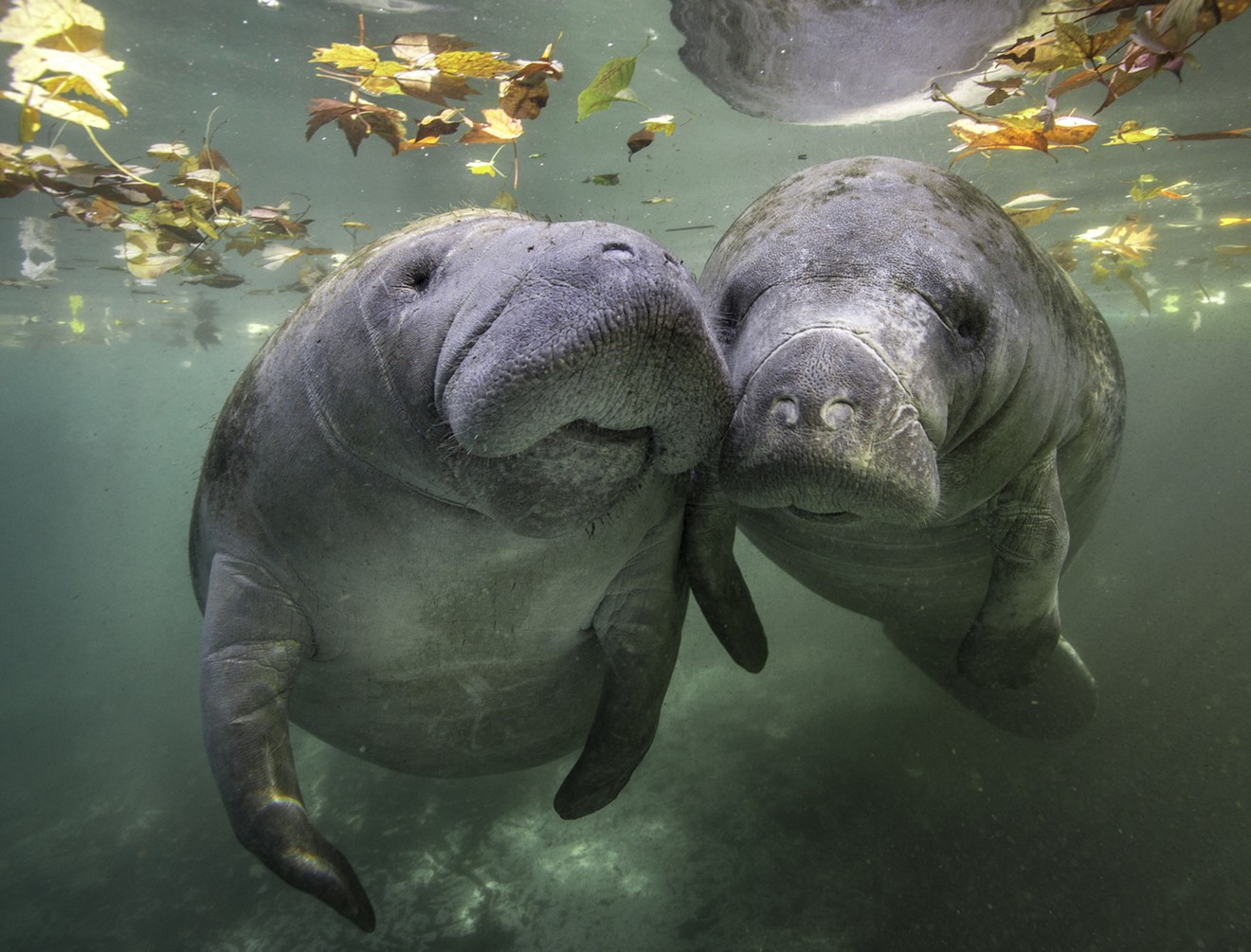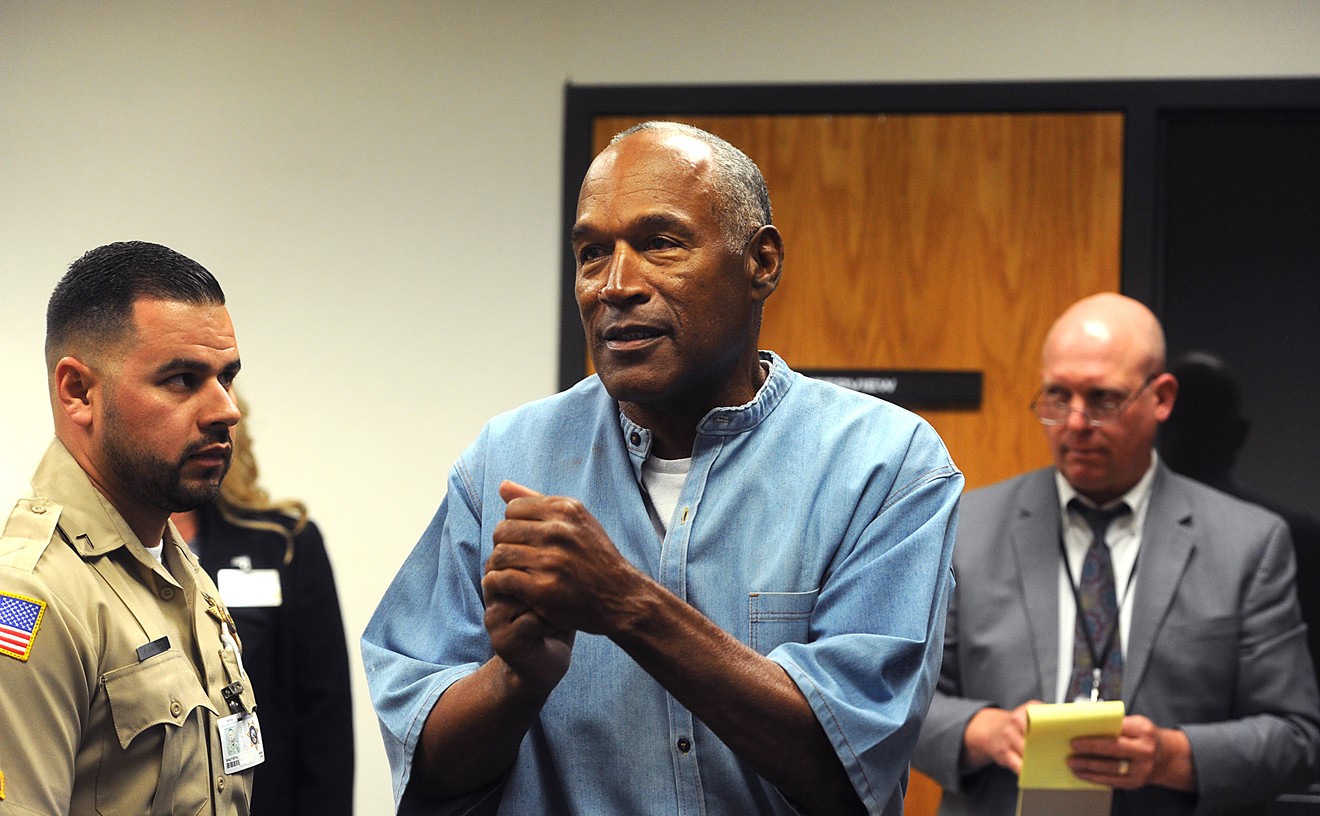Manatees are starving to death at record rates, red tide and algal blooms are becoming more common and deadly, and more than 200 million gallons of toxic wastewater leaked into Tampa Bay.
These are just a few of Florida's latest environmental catastrophes, and yet the state's top environmental management agency, the Department of Environmental Protection's (DEP) Environmental Regulation Commission (ERC), has not met in more than five years.
That's right. Five years.
The DEP tells New Times that the ERC last convened on February 8, 2017. That's almost two years before Gov. Ron DeSantis, who said he'd make the environment one of his top priorities, assumed office in 2019.
"I mean, I think they're in the Florida Keys hanging out," Caleb Merendino, cofounder of the Fort Lauderdale-based environmental nonprofit Waterway Advocates, tells New Times. "I literally don't know where they are, and I don't think anyone knows where they are."
Created by statute in 1975 along with the DEP's predecessor agency, the Department of Environmental Regulation, the ERC is a seven-member group tasked with reviewing the "scientific and technical validity, economic impacts, and relative risks and benefits to the public and the environment" and then signing off on the DEP standards and rules, from air pollution to water quality to waste management.
For example, in 2016, the ERC updated the limits on 43 toxic chemicals that can be dumped into the water. And in 2013 it developed nutrient standards for total phosphorus, nitrogen, and chlorophyll at six estuaries in the Florida Panhandle. According to the Florida Senate, the commission is "an important public access point in the rulemaking process" and can hold meetings around the state when necessary.
In March 2021, Gov. Ron DeSantis appointed four people to serve on the commission, whose four-year terms are non-salaried: Thomas K. Frazer (dean of the College of Marine Science at the University of South Florida), Cari Roth (vice president of governmental and regulatory affairs for the family-owned agri-business Lykes Bros), Jim McCarthy (North Florida Land Trust president), and Eric Buermann (former chairman of the South Florida Water Management District governing board). However, the ERC's website doesn't appear to have been updated; it still lists vacant seats and former members who served until 2017.
Buermann and Joyce did not respond to emailed requests for comment from New Times. Frazer, Roth, and McCarthy confirm that they are still serving on the board — Roth since 2010, McCarthy since 2016, and Frazer since 2021.
Both Roth and McCarthy told New Times they have limited authority as ERC members, and say that the DEP is responsible for scheduling meetings.
"You’re right, we haven’t had any meetings and I honestly don’t know why DEP..." McCarthy says on the phone before trailing off. "DEP calls those meetings and — so I’m waiting on a call of the meeting."
So why hasn't DEP called a meeting? Roth says that's a question for the agency, not the board.
"Your questions are really better answered by the Florida Department of Environmental Protection or the Governor’s office," Roth writes in an email. "I would point out that the ERC is not a board like the water management districts' governing boards. The authority is much more limited.... We are called to meet when there is a rule that needs our review under the statute."
DEP communications director Dee Ann Miller informs New Times via email that "there has not been a reason to convene the ERC" and that "the ERC has a quorum and would be able to be convened to take up new business as needed." Miller adds that the board also includes Frank Gummey (former New Smyrna Beach city attorney) and Joe Joyce (associate vice president of the University of Florida's Institute of Food and Agricultural Sciences).
Even though the ERC hasn't met, Frazer tells New Times he supports DeSantis' environmental work across the state and "look[s] forward to the opportunity to engage with FDEP personnel and other ERC board members on important environmental issues as requested."
"With regard to my recent appointment to the Environmental Regulation Commission, I stand ready as a member of the board to lend my expertise to the group. As you are aware, I serve at the pleasure of the Governor and the Florida Department of Environmental Protection oversees ERC activities," Frazer writes via email. "I continue to be encouraged by the historic levels of funding for environmental improvement programs throughout the state and applaud the Governor and our legislative leaders who have championed these important efforts."
Merendino, along with Waterway Advocates' cofounder Ben Swanson and president David McVey, are outraged by the board's five-year disappearing act and argue that there's no shortage of issues for the commission to discuss. Last week, the group sent a letter to the DEP and DeSantis "urging for action now" even if DEP staff has insisted "there have been no agenda items that have required [ERC] to convene." (The letter is embedded at the end of this article.)
"Florida's Environmental Regulation Commission is not doing much regulating these days," reads a post on the Waterway Advocates' website. "In fact, the commission tasked with addressing air and water pollution in the Sunshine State has decided that there have been zero environmental issues worth discussing within the last 5 years."
The letter writers specifically mention a new study that examined water quality across the United States and found that Florida has the highest total acres of lakes too polluted for swimming or healthy aquatic life. They also note that almost 500 manatees have already died this year from the ongoing unusual mortality event happening.
"If this trend remains at this rate, mathematically, we could see a potential loss of 1,500 manatees — this year!" the letter reads. "Certainly this is something the ERC should be discussing?"
Merendino has "never been more shocked" by a commission that has such a massive impact but has failed to do much to protect the state's environment — particularly given how reliant Florida's economy is on tourism and clean waters.
"To not do everything you can to protect your economy, your citizens, and local ecosystems or statewide ecosystems," Merendino says, "It blows my mind. I have no comprehension of it."
[
{
"name": "Air - MediumRectangle - Inline Content - Mobile Display Size",
"component": "19274298",
"insertPoint": "2",
"requiredCountToDisplay": "2"
},{
"name": "Editor Picks",
"component": "17482312",
"insertPoint": "4",
"requiredCountToDisplay": "1"
},{
"name": "Inline Links",
"component": "18711090",
"insertPoint": "8th",
"startingPoint": 8,
"requiredCountToDisplay": "7",
"maxInsertions": 25
},{
"name": "Air - MediumRectangle - Combo - Inline Content",
"component": "17482310",
"insertPoint": "8th",
"startingPoint": 8,
"requiredCountToDisplay": "7",
"maxInsertions": 25
},{
"name": "Inline Links",
"component": "18711090",
"insertPoint": "8th",
"startingPoint": 12,
"requiredCountToDisplay": "11",
"maxInsertions": 25
},{
"name": "Air - Leaderboard Tower - Combo - Inline Content",
"component": "17482313",
"insertPoint": "8th",
"startingPoint": 12,
"requiredCountToDisplay": "11",
"maxInsertions": 25
}
]












